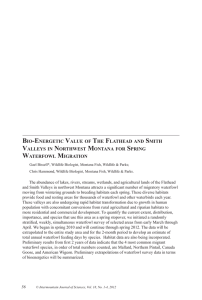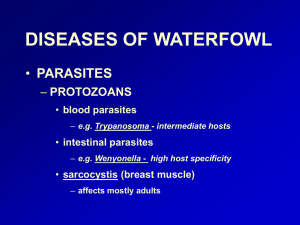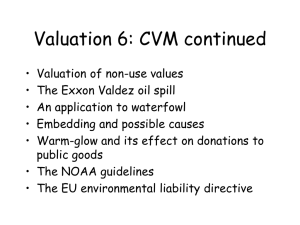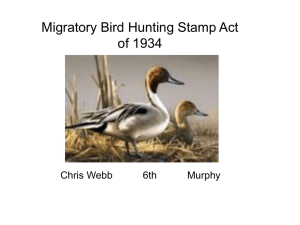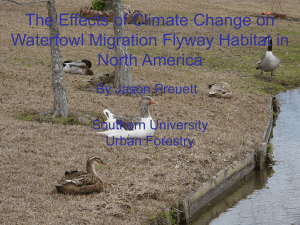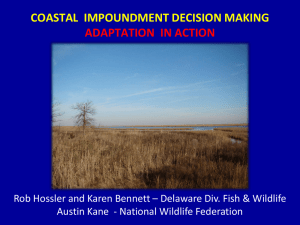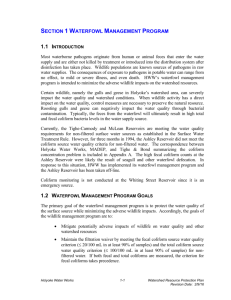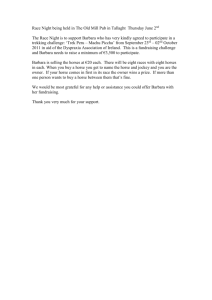DU-Letter-to-EPW-Minority-5-21-12
advertisement
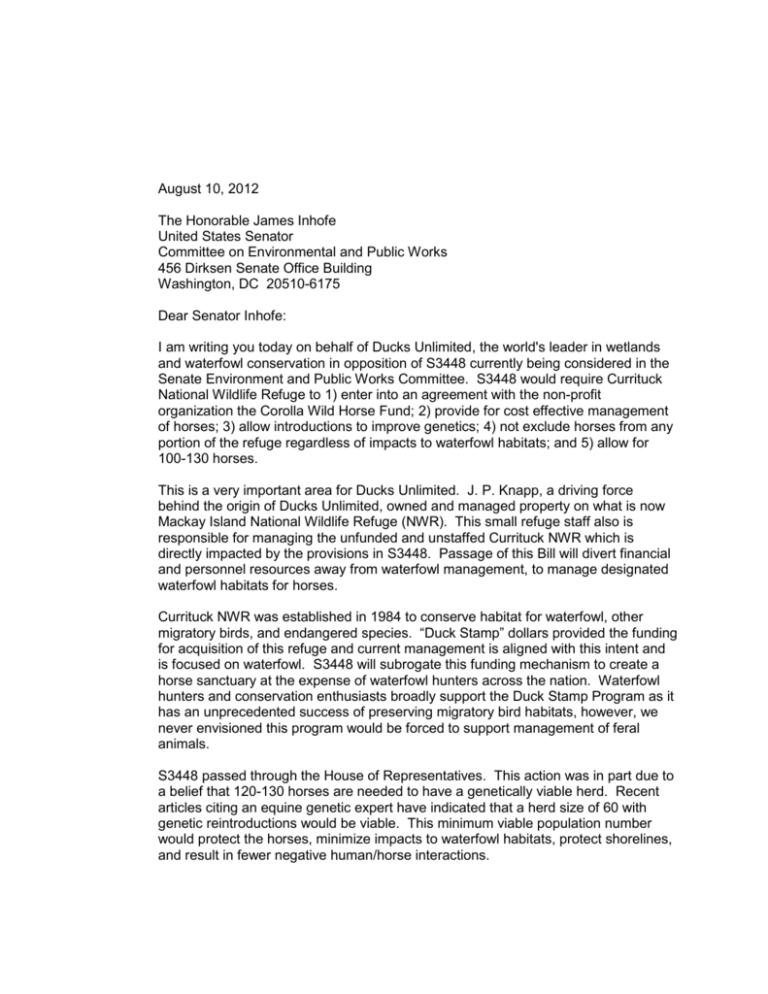
August 10, 2012 The Honorable James Inhofe United States Senator Committee on Environmental and Public Works 456 Dirksen Senate Office Building Washington, DC 20510-6175 Dear Senator Inhofe: I am writing you today on behalf of Ducks Unlimited, the world's leader in wetlands and waterfowl conservation in opposition of S3448 currently being considered in the Senate Environment and Public Works Committee. S3448 would require Currituck National Wildlife Refuge to 1) enter into an agreement with the non-profit organization the Corolla Wild Horse Fund; 2) provide for cost effective management of horses; 3) allow introductions to improve genetics; 4) not exclude horses from any portion of the refuge regardless of impacts to waterfowl habitats; and 5) allow for 100-130 horses. This is a very important area for Ducks Unlimited. J. P. Knapp, a driving force behind the origin of Ducks Unlimited, owned and managed property on what is now Mackay Island National Wildlife Refuge (NWR). This small refuge staff also is responsible for managing the unfunded and unstaffed Currituck NWR which is directly impacted by the provisions in S3448. Passage of this Bill will divert financial and personnel resources away from waterfowl management, to manage designated waterfowl habitats for horses. Currituck NWR was established in 1984 to conserve habitat for waterfowl, other migratory birds, and endangered species. “Duck Stamp” dollars provided the funding for acquisition of this refuge and current management is aligned with this intent and is focused on waterfowl. S3448 will subrogate this funding mechanism to create a horse sanctuary at the expense of waterfowl hunters across the nation. Waterfowl hunters and conservation enthusiasts broadly support the Duck Stamp Program as it has an unprecedented success of preserving migratory bird habitats, however, we never envisioned this program would be forced to support management of feral animals. S3448 passed through the House of Representatives. This action was in part due to a belief that 120-130 horses are needed to have a genetically viable herd. Recent articles citing an equine genetic expert have indicated that a herd size of 60 with genetic reintroductions would be viable. This minimum viable population number would protect the horses, minimize impacts to waterfowl habitats, protect shorelines, and result in fewer negative human/horse interactions. August 10, 2012 Page Two The current herd size is approximately 140. The level of impact at this population size, essentially the same as mandated in the Bill, is extremely detrimental to waterfowl as high quality seed producing grasses are incapable of producing seed and the submerged aquatic vegetation is also heavily grazed. In recent years, with this rapidly expanding horse population several private hunt clubs have expressed interest in fencing horses off their properties and many others have actually done so. These fences place even greater pressure on the waterfowl resources left on the refuge and this Bill would prevent the refuge from protecting these remaining essential habitats. Many native bird species would be negatively impacted by this Bill not just waterfowl. We understand the emotional nature of the horse issue and are sensitive to this part of local heritage of our ancestral home. However, this region also has a rich waterfowl heritage which seems to get lost in this argument. We believe that given a managed herd of 60 will be genetically viable it is unwarranted to mandate a herd of 120-130, change the purpose of a waterfowl refuge, abolish the integrity and success of the duck stamp program, or eliminate waterfowl protection options in an area with such a storied waterfowl tradition. We would like to thank you in advance for not supporting this legislation, not allowing a herd number detrimental to migratory birds, and preserving our waterfowl conservation legacy by protecting the intent, purpose and success of the Duck Stamp Program. Sincerely, H. Dale Hall Chief Executive Officer cc: Senate Environment and Public Works Committee The Honorable Richard Burr The Honorable Kay Hagan The Honorable Mark Warner The Honorable Jim Webb
